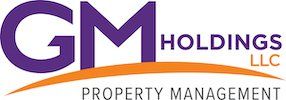Tips For Renting Your First Apartment
Renting your first apartment often brings feelings of freedom. On the other hand, it can also be quite overwhelming. New renters may have gotten a taste of living on their own at college, but this experience may not have fully prepared them for the ins-and-outs of apartment hunting, budgeting, signing or co-signing leases, making security deposits, making pet deposits, making rent each month, or dealing with landlords and property management companies.
When you’ve never handled any of these things before, it may seem like a daunting onslaught of responsibilities. GM Holdings strives to streamline the rental process and make it as accessible and convenient as we can for our clients, and we want you to be prepared as a first-time renter. Here are some basic tips you should know about renting your first apartment.
Search Smart
Any hunter worth their salt wouldn’t train their rifle into the water to take out some big game deer. Likewise, no fisher with an iota of common sense would cast their line into the middle of the forest if they wanted to hook some sea bass. The same principle applies to apartment hunting as well: always seek out reputable sites for finding your perfect apartment. Trulia , PadMapper , RentJungle , and Apartments.com are amongst the most ubiquitous apartment hunting grounds that you can visit for reviews, images, rent comparison listings, and more.
Getting to know and trust your landlord may be intimidating too. Fortunately, there are countless review sites out there to let you know all the goods and bads of what you’re in for, well before you sign that lease agreement.
WhoseYourLandlord , ReviewMyLandlord , and RateMyLandlord are all great hubs to find honest evaluations of the people you might want to rent from. Yelp , Facebook , and the Better Business Bureau , while less comprehensive, are also decent places for seeking out property management company reviews as well.
You may want to split the bill and share the lease with a roommate. Many of the aforementioned rental sites (including roommates.com and CrashPad) are also great resources for finding new roommates.
Budget Wisely
Most landlords or management groups prefer tenants with credit scores of 620 or higher, though renting with weaker credit is still popular. Even if you don’t have the best credit score, showing your property manager your pay stubs (as proof of solid income), bank statements (as proof of solid savings), or co-signing the lease to someone with better credit can forgive that. All of the above factors can make you look more attractive in the eyes of landlords, and make them more confident in your prospects to pay rent every month.
Ideally, you’ll have at least a few month’s worth of rent payments saved in the bank before signing the lease, as well as additional costs. A good monthly income-to-rent ratio is approximately 1/3rd of your monthly income, and a good rule of thumb for a comfortable annual income would be making at least 40x your monthly rent payments, so you can comfortably maintain those payments as well as any additional expenditures you need to cover.
Set aside at least $150-$300 for food, $40-$100 for any application or credit check fees, $90-$200 for utilities and additional amenities, and $200 for personal use each month. Assuming you took home $40k net income this year after taxes and had $28k after a year’s rent, those additional expenditures would leave you with around $18,400, which could be put toward additional savings, retirement, or other expenses. Additionally, if you have any pets, you may be paying an additional (single or monthly) pet deposit fee for them as well.
If you’re still uncertain, you can utilize online tools such as Zillow’s Rent Affordability Calculator to double check that your apartment would fit well within your budget.
Read the Fine Print
Evaluate every particular ground rule, clause, and fee written into the lease carefully.
You may be responsible for making separate utility payments, or they may be fixed into the rent. Once you’ve figured that out, regardless of whether or not the water and gas are running when you move in, you’ll still need to call the respective companies to put those utilities in your name.
Some lease clauses may have limits on pets, occupants, smoking, or subletting (if you’re out of town for over a month or two), so always evaluate that those rules will fit within your priorities and align with your landlord’s verbal agreement too.
Location, Location, Location
Before you move in, thoroughly evaluate the property and the area around your property. Is the neighborhood safe? Does the property have enough space for your belongings inside? Is their optimal space for parking, or if you don’t need or want to drive for your commute, any nearby bus stops or train stations? Useful sites for this include Google Maps , NeighborhoodScout , Nextdoor , and Moving.com’s City Profile Reports .
Before finalizing the deal, ask to visit the actual property in person, to ensure that cleanliness and maintenance are kept up regularly and that the property fully matches the online description. If you can, also ask prior tenants about their own experiences (good and bad) dealing with the property, landlords, or management company, so you can gain a full picture of what to expect going forward.
Happy hunting!
GM Holdings LLC
Office Hours





